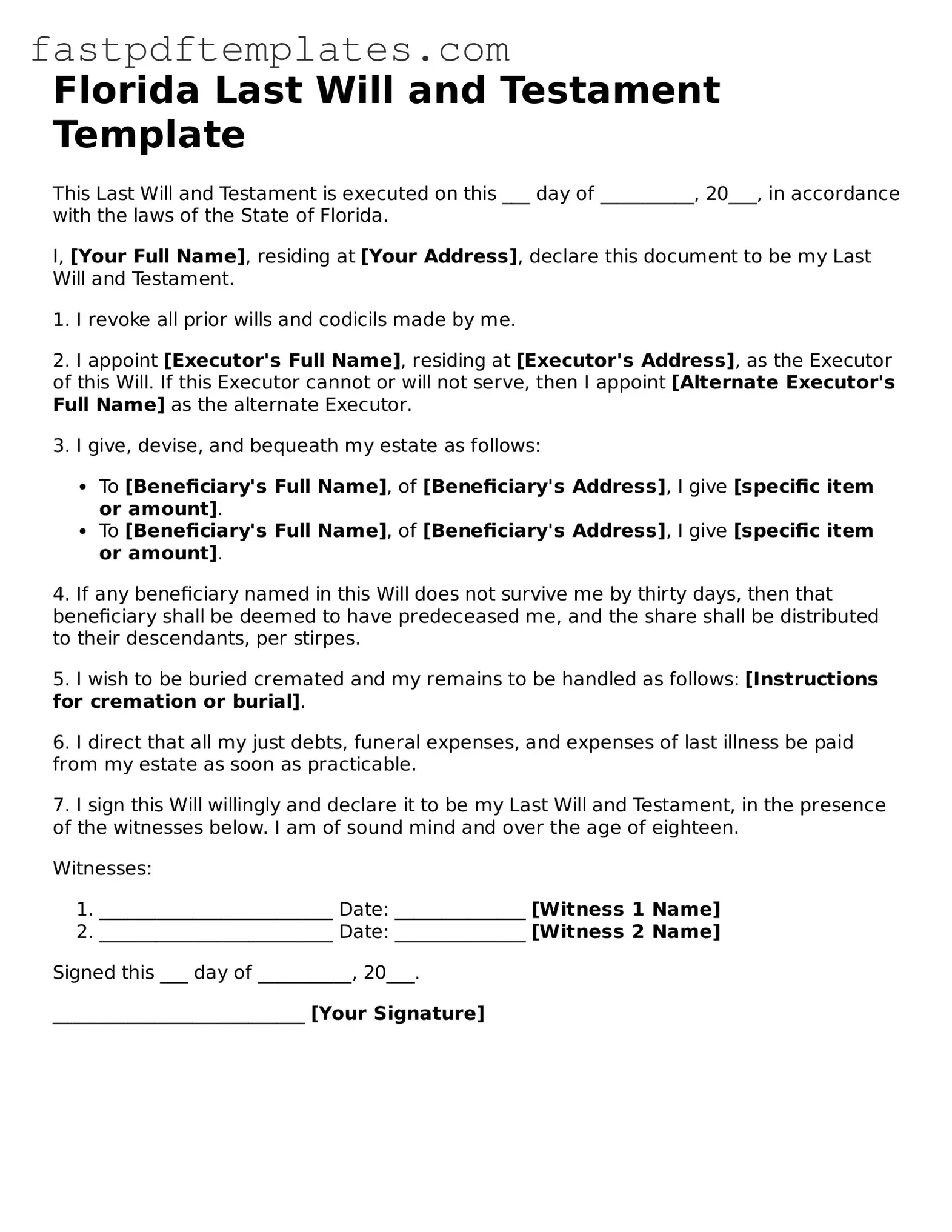Attorney-Approved Florida Last Will and Testament Document
The Florida Last Will and Testament form is a legal document that outlines an individual's wishes regarding the distribution of their assets after death. This essential form ensures that your intentions are honored, providing clarity and direction to your loved ones during a challenging time. Understanding its components and requirements is crucial for effective estate planning in Florida.
Access Document

Attorney-Approved Florida Last Will and Testament Document
Access Document
Your form still needs completion
Complete your Last Will and Testament online and download the final PDF.
Access Document
or
Click for PDF Form
